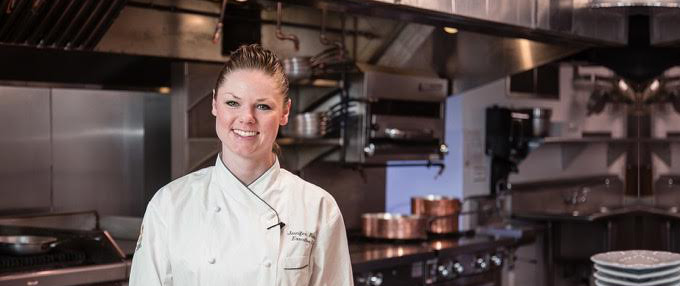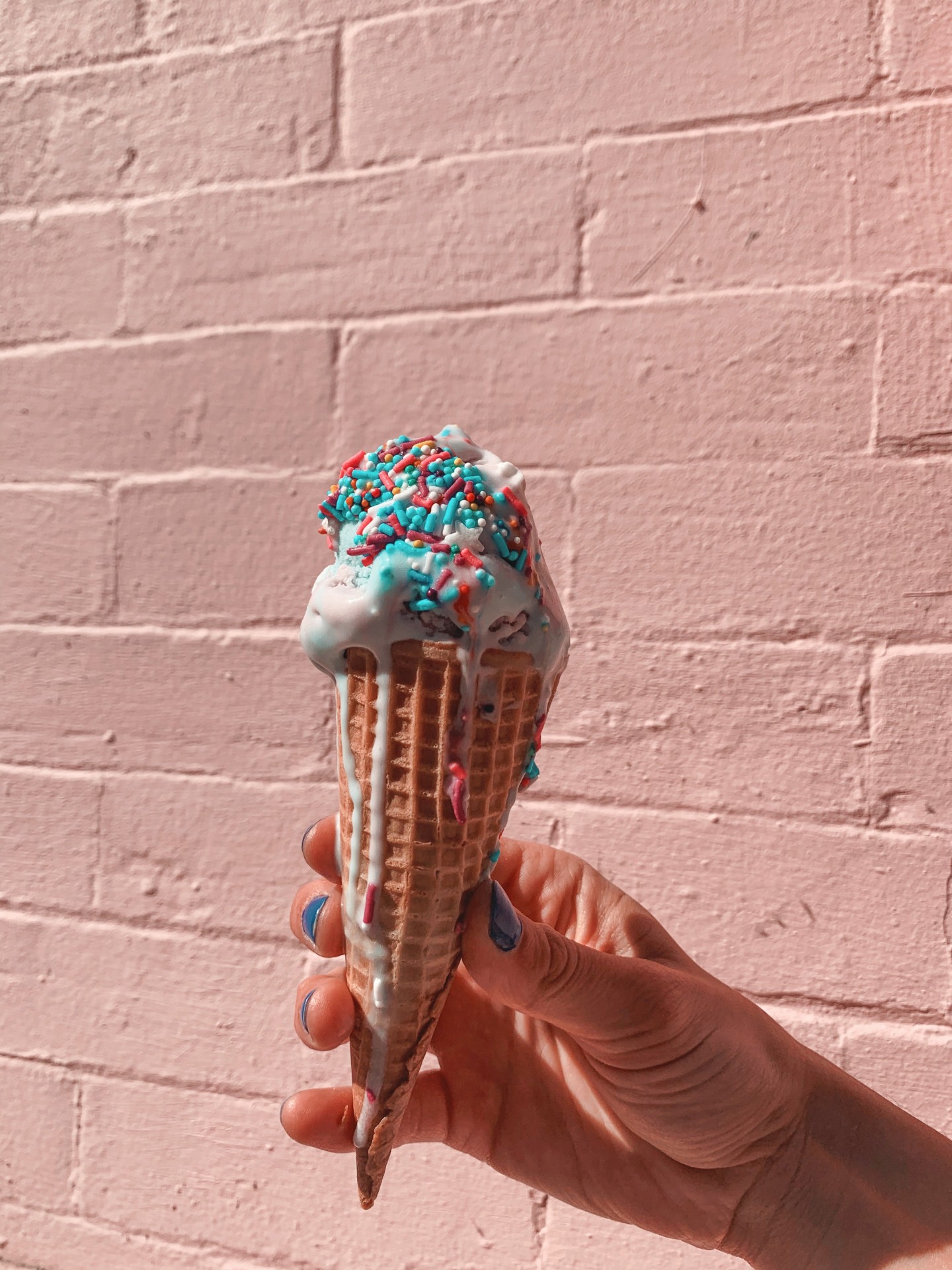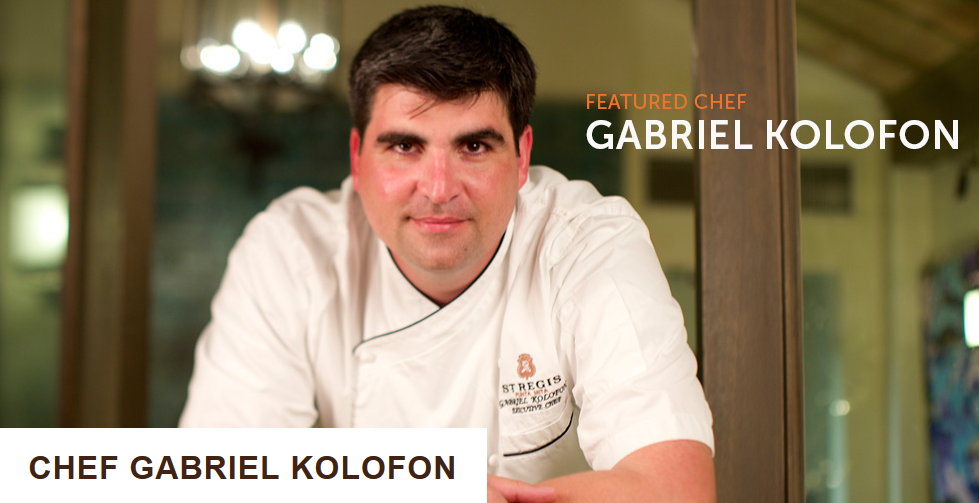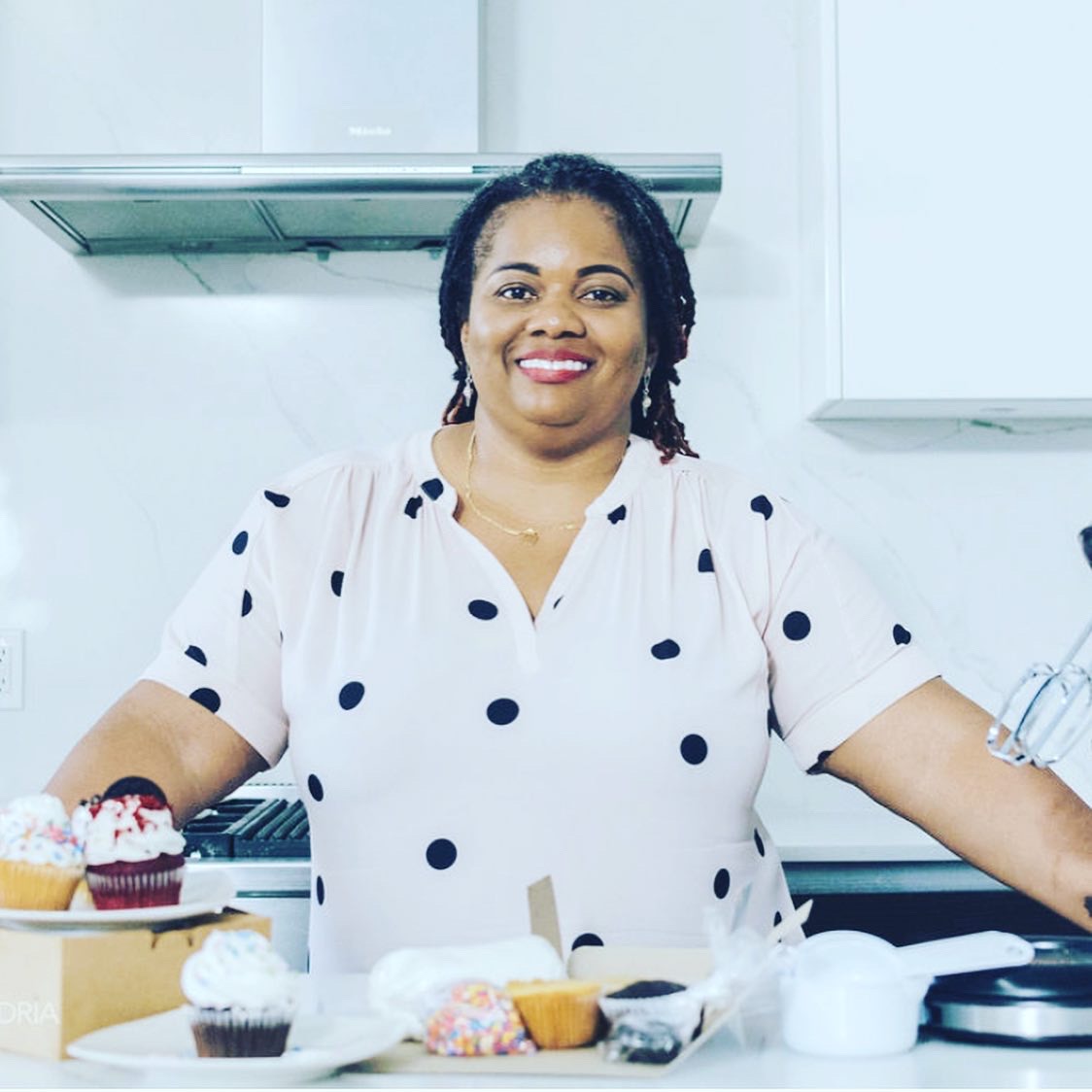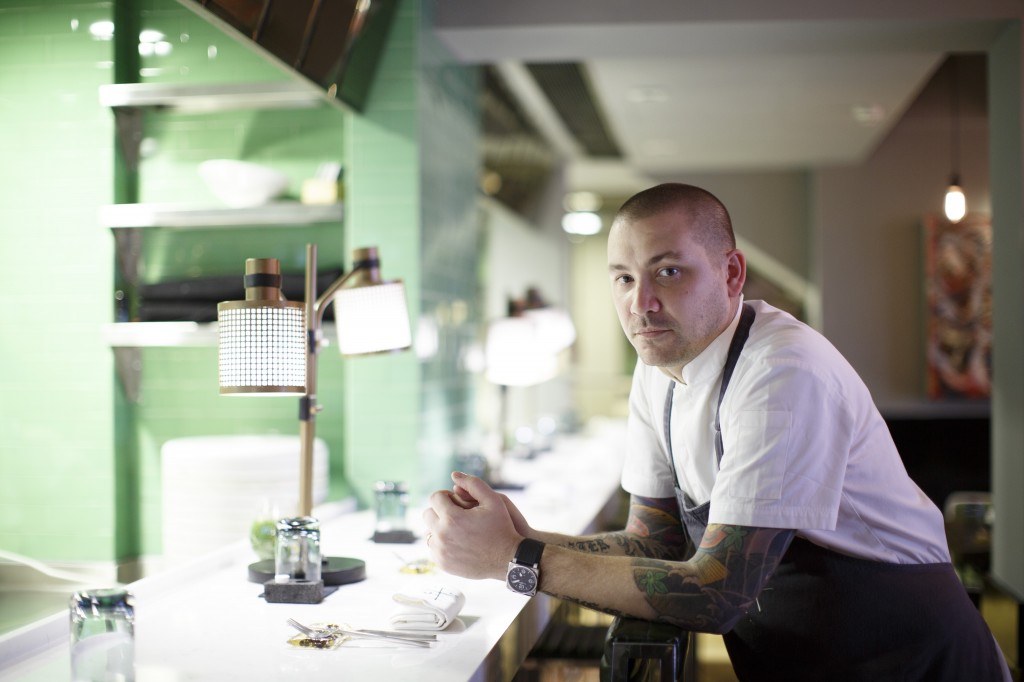 Over the course of his 23-year career, Ryan has worked with some of the world’s best chefs, launched a highly anticipated TV show on the National Geographic Channel, and was deemed the gastronomic superstar of tomorrow by 10 of the world’s greatest chefs in the cookbook by Phaidon titled Coco.
Over the course of his 23-year career, Ryan has worked with some of the world’s best chefs, launched a highly anticipated TV show on the National Geographic Channel, and was deemed the gastronomic superstar of tomorrow by 10 of the world’s greatest chefs in the cookbook by Phaidon titled Coco.
- What does your typical day look like?
Ryan: My typical day starts off at 7am in the morning, or 6.30am, when my boys wake me up. Breakfast with my sons and wife. And then normally, I’m around into work by 9am with my head chef Paul pondering the day’s work, checking the reservations, making sure all our VIPs and regular customers are looked after. Then myself and Paul will start planning menus, making sure that all customers who dine here regularly always get to see new dishes. It might not be an entirely new menu but we try to customize it as much as possible to let them have that special experience every time.
Lunch normally finishes around 3pm in the afternoon. But that depends, today our lunch service finished at about 4pm. Once lunch finishes and everything’s cleaned up, I have a debrief with my chefs, Paul and Glen. The guys then go on to do their prep. This is normally where I go back upstairs to the R&D kitchen or to the office to check my emails and go over the day’s work with my manager – menu-planning, forward thinking for upcoming events, guest chef promotions.
At 5pm, we all get together to take ‘family’ meals, staff meals. Once we’re done with dinner, some guys duck out to have a cigarette. Me and my head chef would head out for a quick beer to catch up and talk about anything other than work just to clear our heads for half an hour.
Back in, service starts at 6pm and this goes through till at least midnight or 1am. And then, home.
- What techniques and tools do you use to keep yourself organized?
My wife – she’s basically the one that organizes my calendar. I hate using computers, I hate using mobile phones. I’m not scared of technology but technology doesn’t like me. I left school when I was 13, I never really had an education so I prefer to scribble my dirty handwriting into a piece of paper and have someone else type it up for me.
- Was there a person in your career who really made a difference?
I’ve been very fortunate to work with so many chefs. I’ve travelled the world and met and seen many amazing people. I suppose till this day, my college lecturer, Andy Offland, was really the guy who put me in the right direction. Back then, I was a bit of a hoodlum, I was going into a bad direction. He really took me and taught me and explained to me what I needed to be good in this job. He always told me you could play hard if you worked hard; you could only do that if the other happens. I made it my mission in life just to work hard.
- Where do you think the most significant growth will occur in the Food & Beverage Industry in the next few years?
If anyone doesn’t realize, I think Asia’s the place to be at the moment. It has been for the last couple of years. There was big boom a while in Hong Kong, now it has moved to Singapore. The amount of international chefs and industry professionals relocating to Singapore is just mental. With the casino and all the fine dining restaurants opening, Australia is going down the toilet in somewhat of a description; it had its fine dining boom, I think those days are sort of over. I think Asia is where it’s at right now. I think there are more young, talented chefs moving here. It’s very hard to make ends meet in fine dining but how Singapore still has that culture, and the high wealth per capita just supports fine dining scene here.
- What’s your first memory of your love for cooking?
Helping my mom. I suppose most chefs say that; it’s quite cliché. But definitely helping my mom out in the kitchen and helping my nana out with her apple crumble. She used to make wine as well and I would help crash all the grapes. My mom’s not the best chef, but I suppose I grew up in the kitchen helping out. I always, at a very early age, had an interest in food. Tasting everything, trying it, sitting in front of the oven, watching things change through the glass.
- When did you know you wanted to be a Chef?
I knew from a very early age. I started washing dishes in a one star Michelin restaurant at 13 years old. The day I stepped foot into the kitchen and washing the dishes – it consumed me. It must have been the adrenaline and the ferocity of the service, the shouting and screaming.
It’s funny b
ecause I lied about my age to get the job. The first day at work, that was a Friday night. At the end of service, we all went out in the back lane and the chef came out with a tray of pints of beer. I’ve never had a full pint in my life; I was 13 years old. One of the chefs was like “Do you want a smoke?” and I was like “Ah, yeah.” I was 13 and I was thinking life was amazing. I felt like a rock star. But yeah, I’ve never looked back since.
- Where were you trained, and how difficult was your training?
I trained with some amazing chefs. I started off in a one star Michelin restaurant but then moved to London to work at Claridge’s which is an institution for classic gastronomy with an Auguste Escoffier sort of style of cooking. I was very fortunate to work with John Williams who was the executive chef at the time and also the founder of the Escoffier Foundation. Learning that hard core classic from the horse’s mouth almost. Everyone referred to John as Escoffier. The guy was a walking dictionary of Escoffier’s life’s work.
I was very fortunate that Emmanuel Renaut came and was cooking super progressive food and so I started working with him in Claridge’s. And then moved on to work with Marco Pierre White who was probably known as the hardest chef on the planet. But I got along very well with him and had a very good relationship with him; something had clicked between me and him. There were many guys in the kitchen who wouldn’t last 6 hours, 12 hours; guys getting beaten, punched and pushed around in the very aggressive environment. But I was alright with it; I always kept my nose down and had a pat on the back. I think he always had a group of guys he liked and respected for doing their job well and he never had to worry about them. I worked well with him but learnt hard; that was the school of hard knocks.
Then I went over to France to work with Emmanuel again and then moved to Australia and took over Vue de Monde, and then I became my own boss.
Looking back at my Claridge’s and my Marco Pierre White years, I think that was where the foundation of my culinary training came from.
- What do you love most about your job?
It’s not a job. It’s a lifestyle. Anyone who says cooking is a job is an idiot. To be around food, to see the look on a customer’s face when they’re enjoying something. The biggest compliment we received this week was seeing three people cry. One of them was a man who was that emotionally moved by the dish. To be able to mess with people’s emotions and to see the excitement and joy in the whole not understanding what the hell is happening to them is awesome. We have an open kitchen and we see that first hand. To make someone happy, that’s our job – we make people happy. That’s what cooking is about.
- Describe your style in three words.
Pretty, bloody crazy. Or, a bit of everything.
- What’s your favorite dish to create?
I don’t have a favourite dish I enjoy creating. I love working with food, period. The beauty of it, having our state-of-the-art R&D kitchen, that’s my new home. It’s where I’m constantly developing new things.
I’m very fortunate that my old lecturer in college said to me, “Don’t ever get stuck onto one section.” In America, in Europe, in Australia, in Asia, a lot of chefs stay on one section, they never move. And they go, I’m the guy that cooks all the meat! You send them into pastry, they’re no one. So I’m fortunate I’ve done every single section well in some of the best restaurants in the world.
- Where do you draw your creative inspiration from?
I don’t follow trends or other people. I just love to have my own knowledge in my head and my own life experiences in the world. I like getting inspiration from everyday life.
- What four ingredients are necessary in your kitchen?
There has to be foie gras, truffle, chocolate and cold beer.
- If you could prepare a meal for anyone, who would it be and what would you make?
I’d love to cook a meal for Auguste Escoffier if I could. I would make my own interpretation of his classic dishes just so he could see what has become of food today.
- What are you most proud of in your career?
Other than my two sons, definitely my latest restaurant, Tippling Club 2.0 – the dining room, the kitchen, the amenities, the furniture, everything about it, I’m the happiest man on the planet and now, to have a state-of-the-art R&D test kitchen where we can just push the culinary boundaries, it’s my life’s goal – I’m there now and I couldn’t be happier.
- Who is your biggest supporter?
My wife. She’s the one that pulls me back in line and is, at the same time, my biggest supporter. I got a lot of respect for her.
- What would you want to have as your last meal?
It would be a bit of a buffet really. I would like my mom’s cauliflower cheese, a chicken and mushroom pot noodle, a big mac, a kebab, proper English fish and chips and a beer.
- Are there any foods you just don’t like?
Funny enough, I’m not a big fan of raw fish. I can eat anything else pretty much, just sushi actually, raw fish, is something that I struggle to swallow.
- What do you think is the most challenging ingredient to work with?
I love a challenge. I don’t find any particular ingredient a challenge; to me, it’s a mission. I love being presented with something we just want to test. I suppose that’s what we do in the test kitchen, we just take one ingredient and keep pushing it and see how many things we could do with it.
- Do you do the cooking at home?
No, I don’t. I make the occasional breakfast but I’m very fortunate that my wife’s a very good cook. When I get home, there’s always something in the fridge for me.
- Funniest kitchen incident?
Probably when I was at Marco Pierre White’s, he held someone’s fur coat ransom because they refused to pay the bill. So he ran into the cloakroom, took the coat and said, “Well, if you want your $10,000 mink jacket back, you can pay the bill.” It was pretty funny, I thought it was genius.
- Favorite kitchen equipment or gadget?
Definitely a thermomix – we’ve got a lot of it in the restaurant. It’s almost like a little commis chef the amount of things you could do with them.
- Tell me 3 things that you consider to be your cooking strengths.
Knowledge of technique, knowledge of flavor, knowledge of science.
- If you had just one wish, what would it be?
That the Singapore government goes easy on the work pass situation, and allows us to hire more foreigners.
- Are you working on any big projects now?
We’ve just reopened Tippling Club in a new location so we’ve just got our heads focused on making sure everything here is perfect. And, working on new projects in the R&D kitchen is at full swing at the moment.
On top of that, there are stories of us opening another restaurant in another country next year – you have to watch this space.
- If you were to give someone just one piece of advice, what would it be?
Never drop your standards, even when everyone around you is cooking like assholes. Never, never drop your standards.



